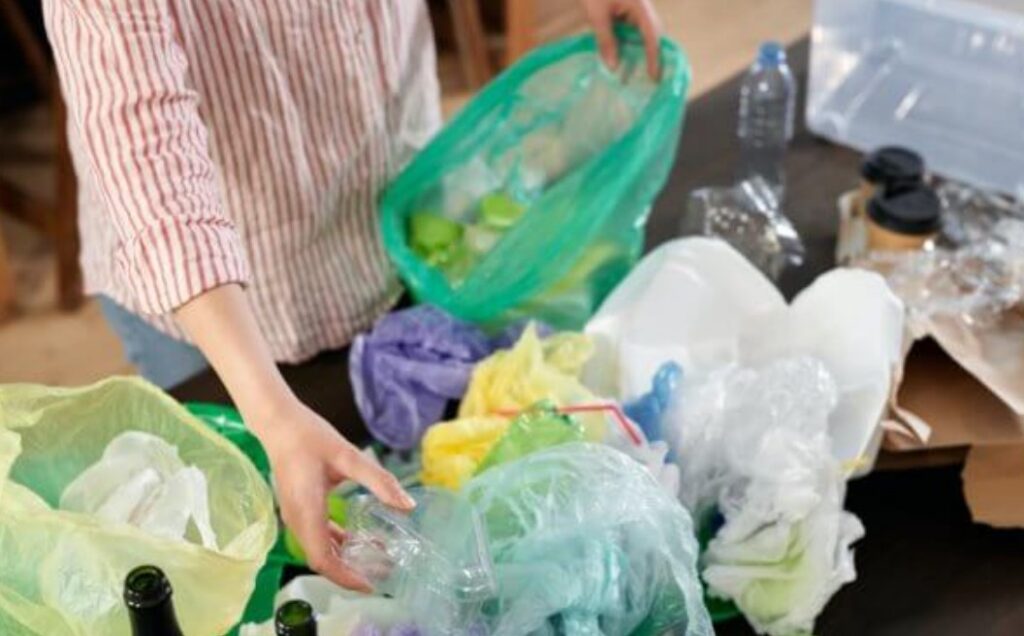 By John Anderer
By John Anderer
Phthalates are a collection of chemicals which increase the durability of plastics. Also known as plasticizers, phthalates are present in countless products such as soaps, shampoos, and vinyl flooring. Recent concerns over the health effects of phthalates, however, have led to a search for safer alternatives.
One of those supposedly safer alternatives is chemical acetyl tributyl citrate (ATBC), but concerning new research released by the American Society for Biochemistry and Molecular Biology reports ATBC may be harmful in its own way. It appears to interfere with the growth and maintenance of neurons in the brain.
“In the past, industries have promptly shifted away from the usage of toxic chemicals only to produce an equally toxic chemical, so this is something we are actively trying to avoid repeating,” says Kyle Sease, a graduate student at Central Washington University, in a media release. “Our study suggests that ATBC, but not other non-phthalate alternatives, could interfere with cells that maintain brain health. We think this finding warrants further testing of ATBC at different doses, in different settings and in whole organism models.”
Phthalates are present in hundreds of products, in most cases to either enhance durability or allow materials to bend and stretch. Prior studies reveal that phthalate exposure can indeed affect the reproductive system and early development in a range of animals, but the health impact among humans is not as clear. ATBC, meanwhile, has emerged as a leading phthalate alternative among many companies looking to stop using phthalates. ATBC is already an ingredient in numerous materials and products, including food and food packaging.
These chemicals may permanently damage the brain
For this latest study, researchers grew cultures of neuroblastoma cells. The team chose these cells because, in terms of growth and division, neuroblastoma cells behave similarly to the glial cells that support and protect brain neurons. Then, study authors used molecular methods to examine how ATBC and other chemicals may or may not affect the genes and processes involved in cellular division.
Study authors discovered that neuroblastoma cells exposed to ATBC increased their expression of two genes with a connection to cellular stress (Nrf2 and p53). Production of an enzyme associated with cellular senescence (B-galactosidase), which can cause cells to stop growing and dividing, also increased.
These findings indicate that ATBC may interfere with glial cells’ ability to regenerate, thereby reducing their capacity to protect neural cells – ultimately leading to neurodegeneration and accelerated aging. It is also possible that exposure to ATBC during early development — a time when neurons are actively growing and dividing — could influence neurons directly and interfere with brain development. Neurons, typically, don’t regrow once damaged, meaning effects on the brain would likely be permanent.
Two additional phthalate alternatives, bis (2-ethylhexyl)-1, 4-benzenedicarboxylate (GPO) and dioctyl adipate (DOA), did not display the same effects as ATBC.
“We found that two other plasticizers did not appear to affect cell division in these cells, so further understanding the different effects of different plasticizers will allow us to understand better how to make safe ones,” Sease concludes.
This research was presented at Discover BMB, the annual meeting of the American Society for Biochemistry and Molecular Biology in Seattle.
Source: Study Finds
John considers himself a pretty nice guy, and an even better writer. He is admittedly biased, though.
Become a Patron!
Or support us at SubscribeStar
Donate cryptocurrency HERE
Subscribe to Activist Post for truth, peace, and freedom news. Follow us on SoMee, Telegram, HIVE, Flote, Minds, MeWe, Twitter, Gab, What Really Happened and GETTR.
Provide, Protect and Profit from what’s coming! Get a free issue of Counter Markets today.

Be the first to comment on "Alternative to Harmful Plastic Ingredient May Be Just As Bad For Your Brain"